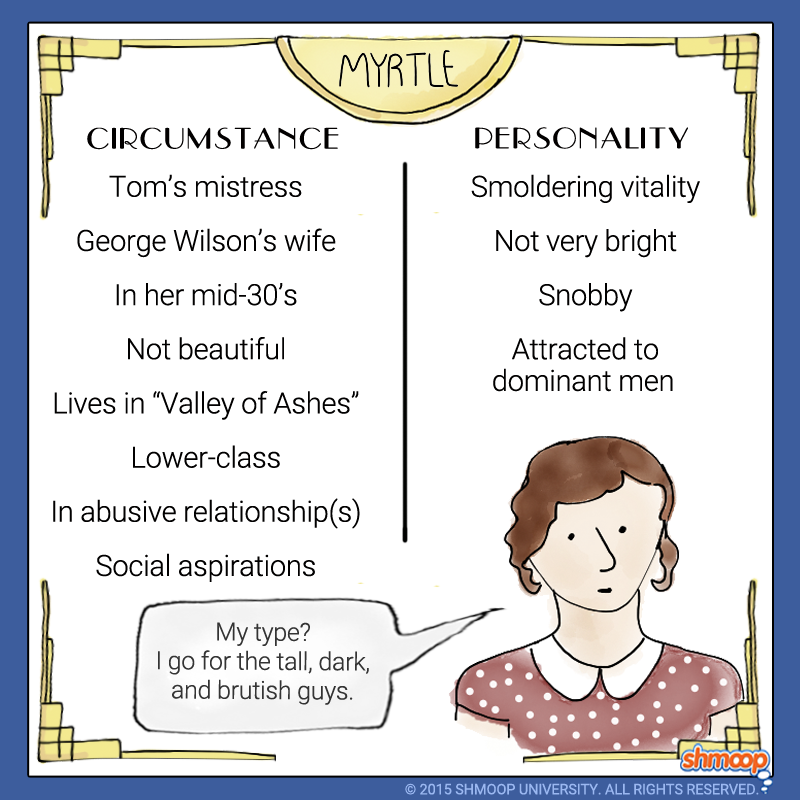Character Analysis

(Click the character infographic to download.)
Myrtle Wilson is not too smart. If she were, she'd have recognized that Tom is Bad News. Look at the way she describes their meeting:
It was on the two little seats facing each other that are always the last ones left on the train. I was going up to New York to see my sister and spend the night. He had on a dress suit and patent leather shoes, and I couldn't keep my eyes off him, but every time he looked at me I had to pretend to be looking at the advertisement over his head. When we came into the station he was next to me, and his white shirt-front pressed against my arm, and so I told him I'd have to call a policeman, but he knew I lied. I was so excited that when I got into a taxi with him I didn't hardly know I wasn't getting into a subway train. All I kept thinking about, over and over, was 'You can't live forever; you can't live forever.' (2.121)
This is creepy, right? He stares her down on a train, shows up beside her in a way menacing enough for her to threaten to call the police, and then apparently practically forces her into a cab. Does he even say hello? Tell her his name? But this ridiculous performance of masculinity pushes Myrtle's buttons in all the right ways. George is passive, but Tom is controlling and authoritative—and she equates that with masculinity.
Obviously Tom tells her his name at some point, and he also tells her a lot more: that the reason he can't leave his wife is because she's Catholic. And Myrtle, the poor fool, believes it. Daisy would be proud.
Class Warrior
Myrtle and Gatsby have one thing in common: they're both trying to rise above their station. Like Gatsby, Myrtle isn't happy with the class she was born to. She insists that she married beneath her, and she tries to talk about the "lower orders" as though she's not one of them: "I told that boy about the ice." Myrtle raised her eyebrows in despair at the shiftlessness of the lower orders. "These people! You have to keep after them all the time" (2.69).
So, what makes Gatsby and Myrtle different? Gatsby is a tragic hero, while Myrtle, in Fitzgerald's portrait, is a ridiculous fool. Is it that Gatsby strives out of love, while Myrtle does it out of greed? Or is it simply because Gatsby is a man—and Myrtle had the tragedy of being born a woman?
Myrtle's Timeline